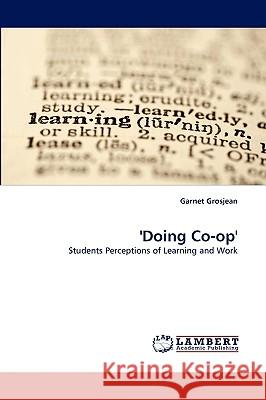'Doing Co-Op' » książka
'Doing Co-Op'
ISBN-13: 9783838320021 / Angielski / Miękka / 2010 / 200 str.
Where, when, and how does learning happen? These questions have interested researchers since Aristotles time. In one of the first comprehensive studies on the topic of learning in co-operative education programs (co-op), this book provides an insight into the perceptions and learning styles of university students in a variety of co-op programs. An educational strategy that alternates students between the classroom and the workplace, co-op began in North America in 1906, and has since spread to more than 50 countries worldwide. The implementation of advanced technologies, and increased global competition fuel debates about what skills are needed in a knowledge-intensive economy. These debates concern relevancy-whether universities produce graduates able to compete in new labour markets. The study examines students experience of the classroom and the co-op workplace to determine benefits that might accrue from the relevancy of the co-op work experience. Results indicate that such experience affects students career expectations and expected job outcomes, and is mediated by the perceived relevance of, and satisfaction with, their co-op work experience.











